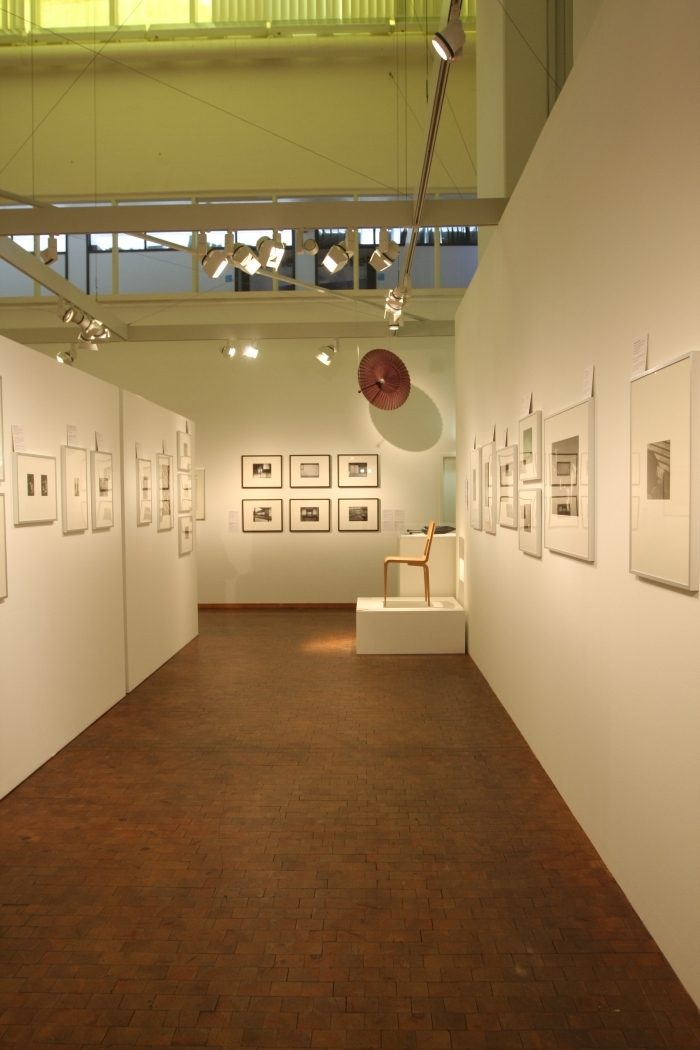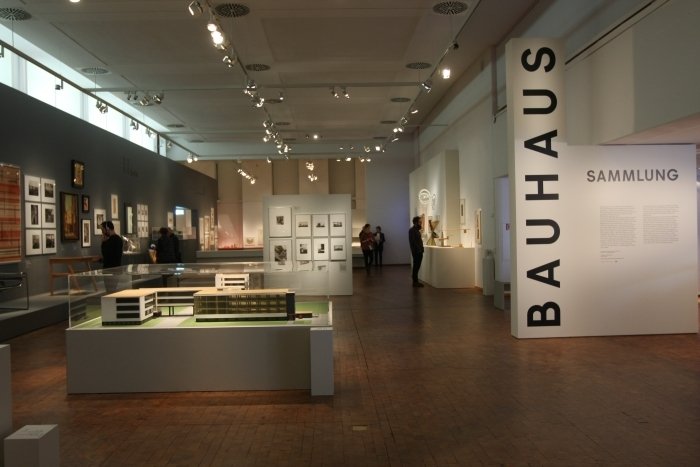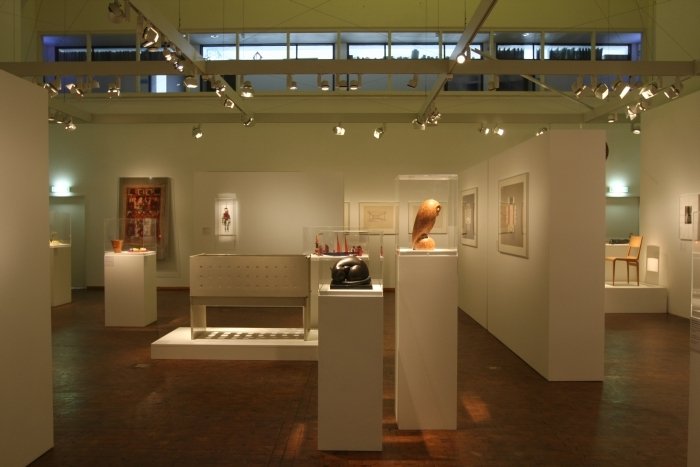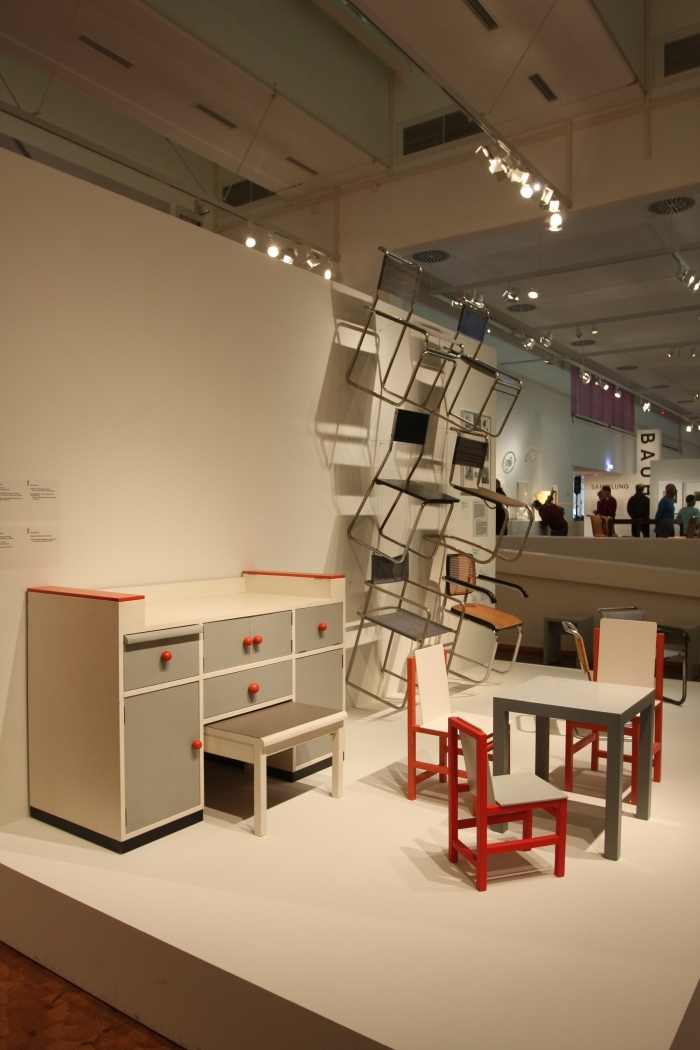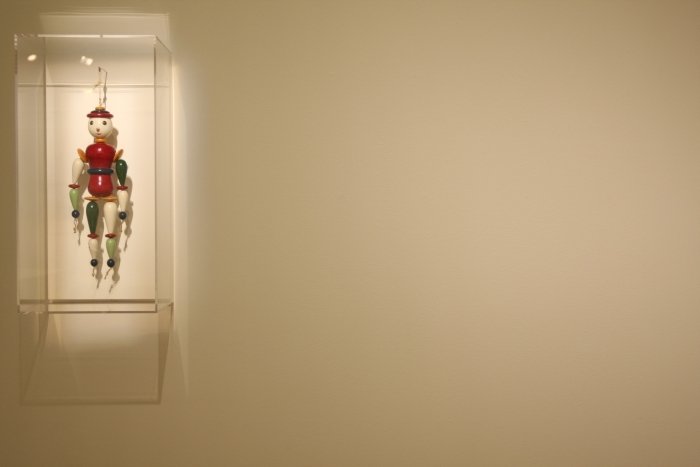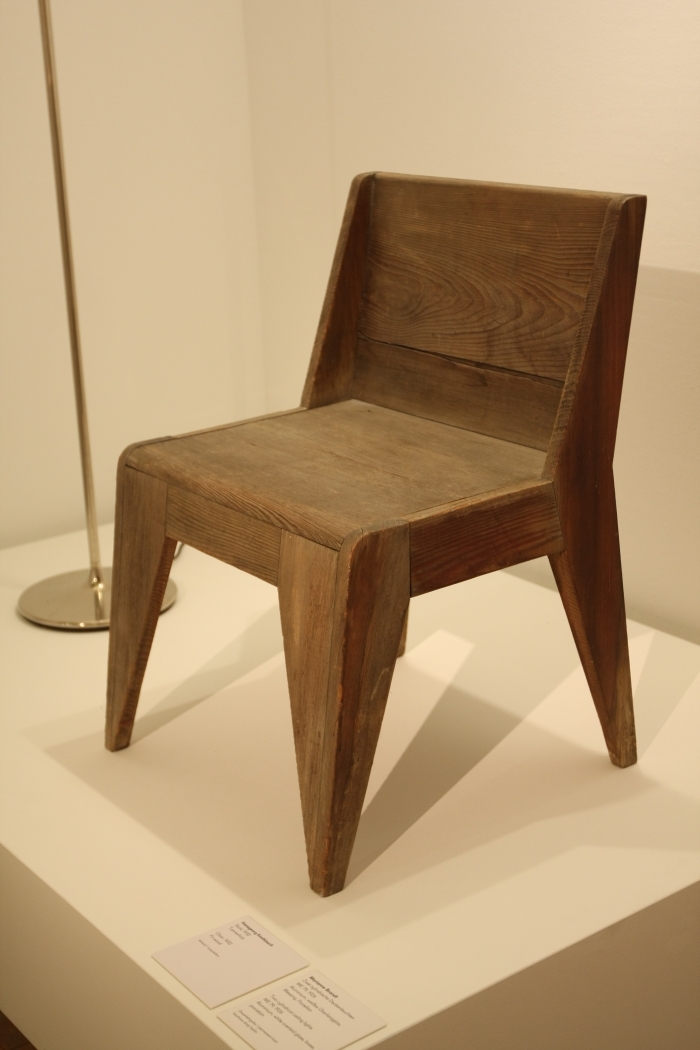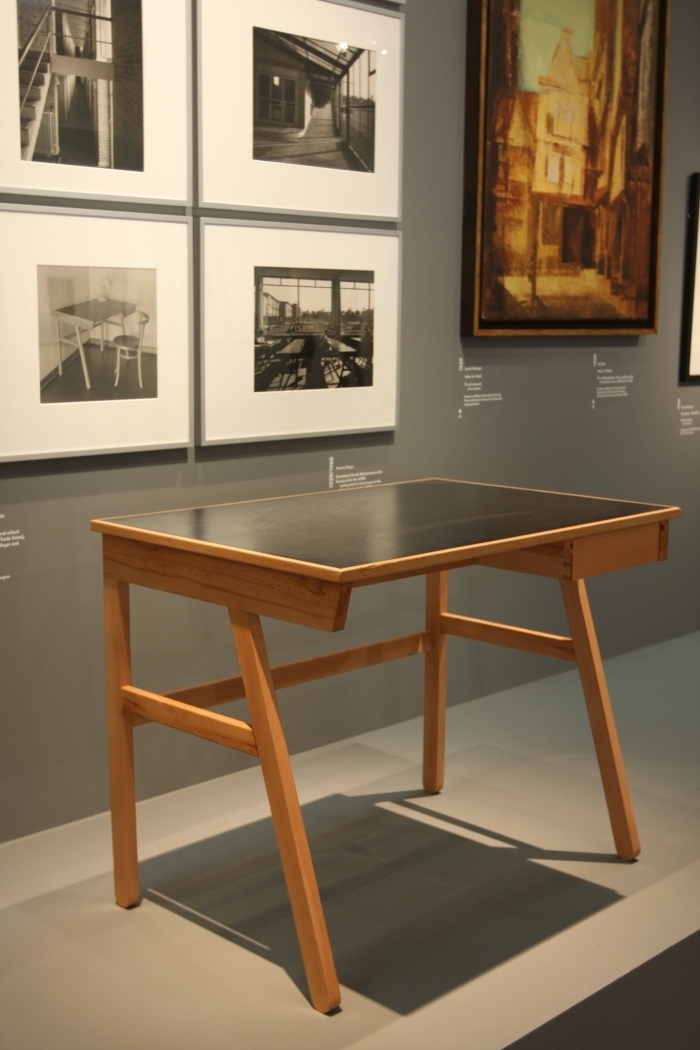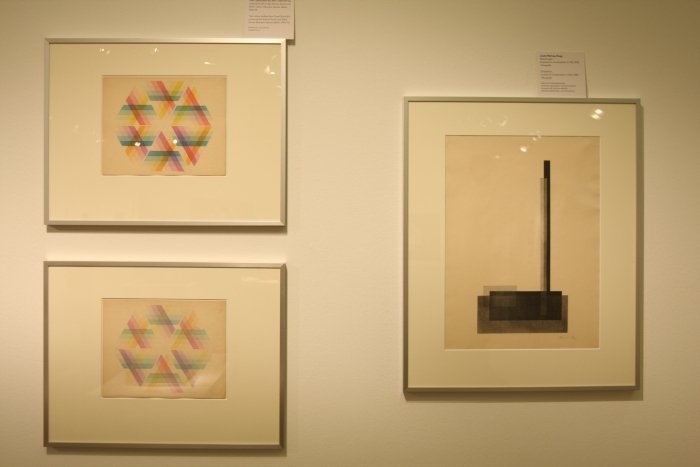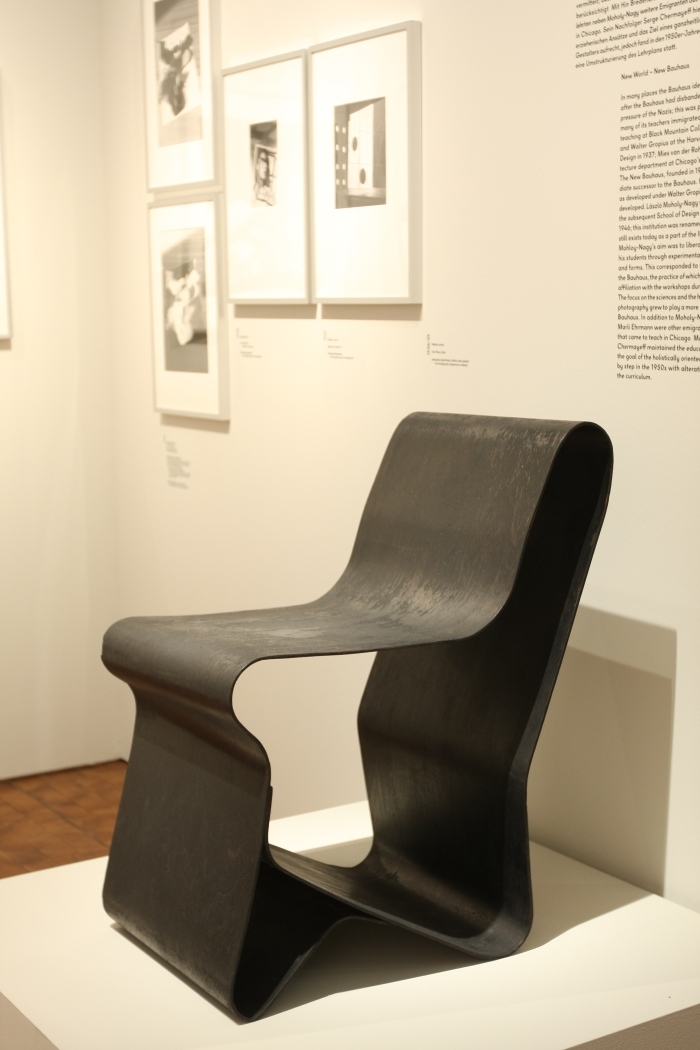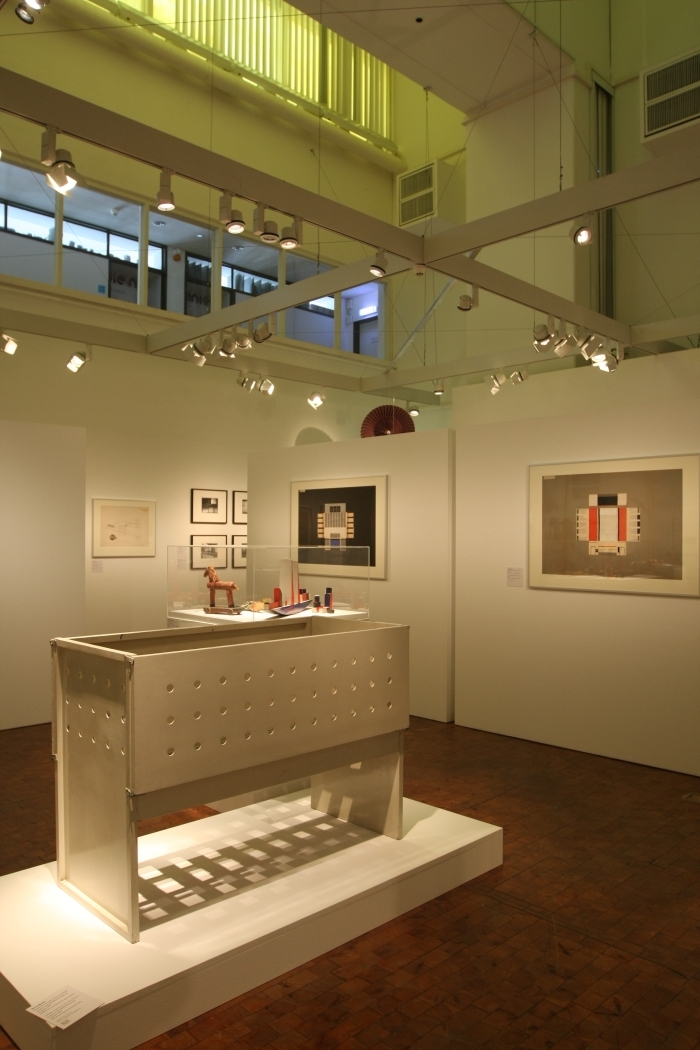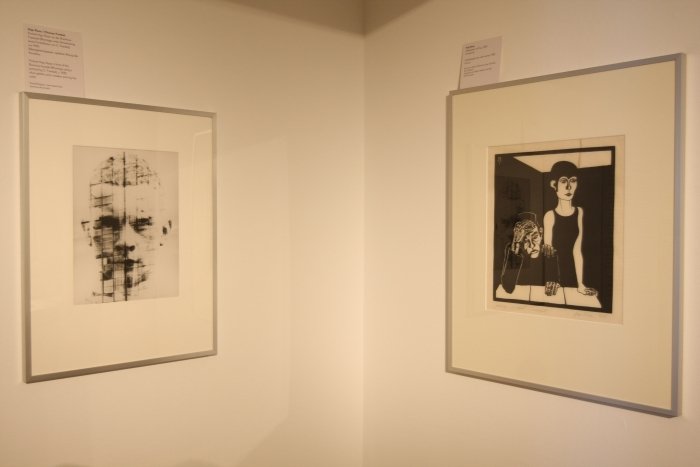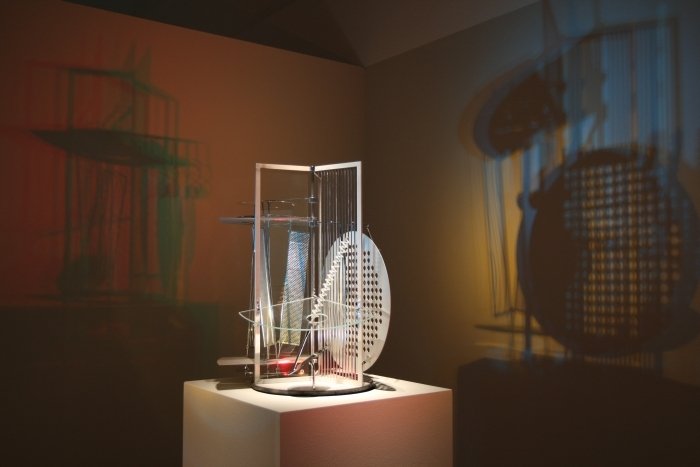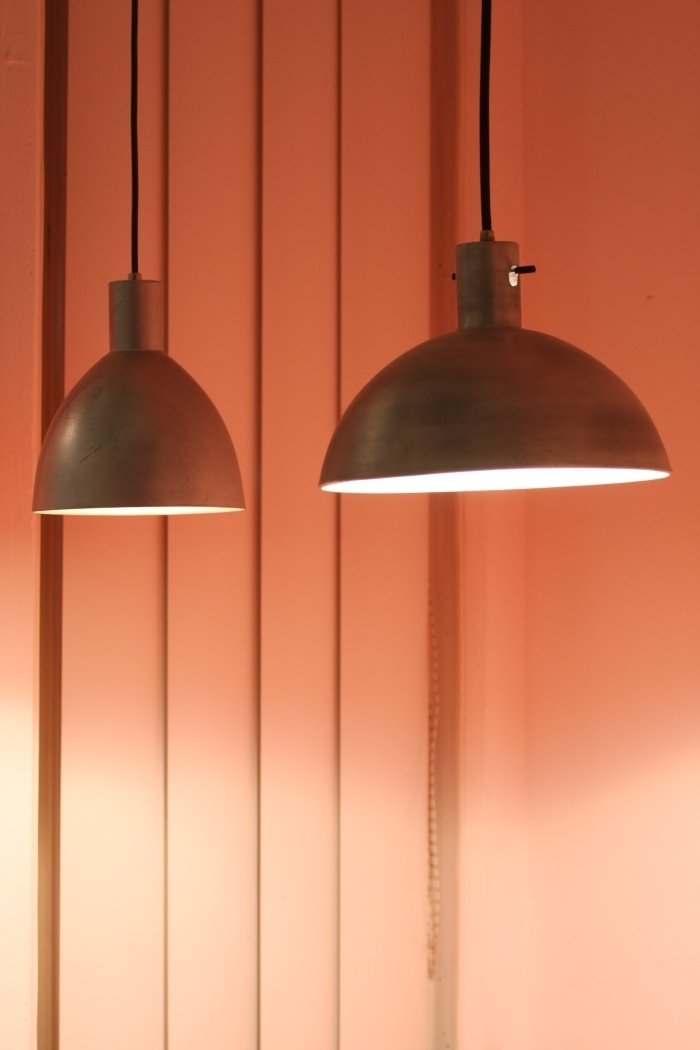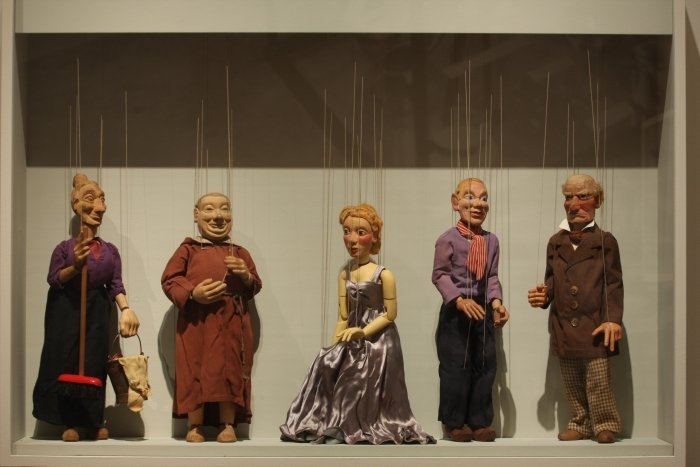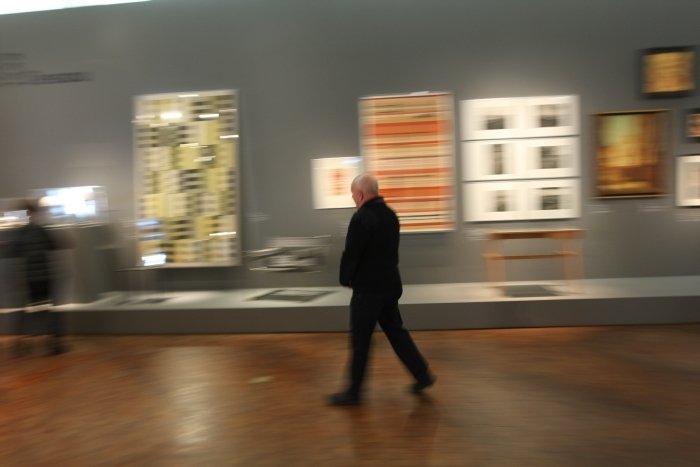Following the necessary disruption of their permanent exhibition to accommodate the recently ended exhibition Sensing the Future: László Moholy-Nagy, die Medien und die Künste, the Bauhaus Archiv Berlin have taken the opportunity afforded to redesign their exhibition concept.
And in doing so have allowed a very welcome fresh wind to blow through their museum.
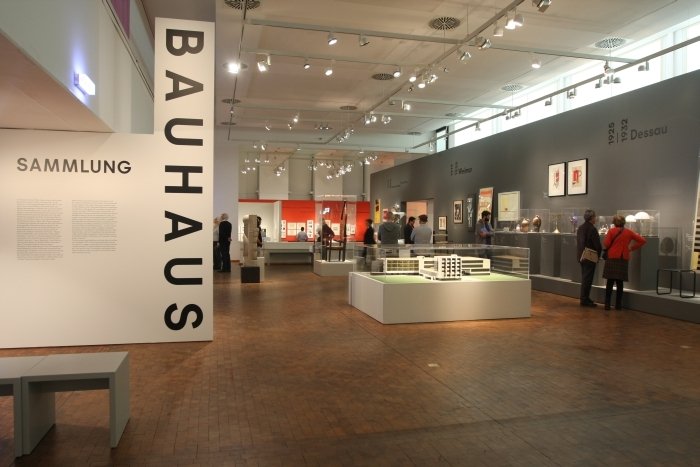
Presented under the title Sammlung Bauhaus - The Bauhaus Collection - the new permanent exhibition still provides only the very vaguest of vague overviews - explaining the complete Bauhaus story in the few square meters available in the Bauhaus Archiv Berlin's museum space is never going to be possible; however, with the new layout and exhibition concept the Bauhaus Archiv have achieved a display that goes far beyond that offered by the previous permanent exhibition, have created a much more entertaining and accessible exhibition than was previously the case, and that although there is, if we've judged it correctly, less on display. A nice illustration of less is more, as one of the more illustrious Bauhaus illuminato would no doubt phrase it.
In addition to looking at the three Bauhaus locations, how the school functioned, the major protagonists and the areas in which the Bauhaus was active, the new permanent exhibition also explores Bauhaus through closely related institutions, be they institutions inspired by Bauhaus such the so-called New Bauhaus in the Chicago or the HfG Ulm in Germany, or contemporaries of Bauhaus such as Burg Giebichenstein Halle, an institution which opened some four years before Bauhaus and which in its teaching and artistic philosophy was just as avant garde and challenging. In addition the new permanent exhibition helps explain that much as Bauhaus was a place of eduction it was also a movement that sought to be at the vanguard of new ideas and developments for building and living. Something it can be easy to forget when one gets too bogged down in the popular visual imagery of a few "Bauhaus Classics" and forgets the context in which they were created, and for all why.
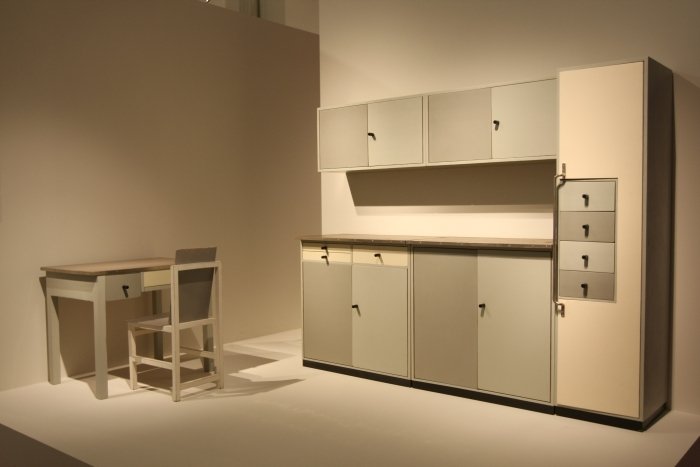
Parallel to unveiling the new permanent exhibition the Bauhaus Archiv Berlin are also opening a new temporary exhibition presenting some 100 new and recent acquisitions. Although neatly complimenting the sense of renewal given by the new permanent exhibition and underscoring the fact that a museum such as the Bauhaus Archiv is a dynamic and forward looking institution, viewing "100 New Objects" is also a gentle stroll down memory lane, featuring as it does objects acquired in context of some of the Bauhaus Archiv's more interesting recent special exhibitions, including, for example, Mein Reklame-Fegefeuer. Herbert Bayer. Werbegrafik 1928 – 1938, Katsura Imperial Villa. Photographs by Ishimoto Yasuhiro, or 2010's Hajo Rose – Bauhaus Foto Typo. Among a vast array of photographs, paintings, furniture objects, toys, ceramics and arts works, the highlights of the recent acquisitions for us are a fascinating chair from 1932 by Hansgeorg Knoblauch, a work that wouldn't look out of place in the Centraal Museum Utrecht's exhibition Klaarhamer according to Rietveld, Ferdinand Kramer's disposable Rainbelle paper umbrella, and a desk lamp designed in 1932 by Heinrich Siegfried Bormann for the Leipzig based manufacturer Kandem, and which serves as a nice reminder that Bauhaus graduates did work for real industrial firms and did produce real industrial products that have their own charm without necessarily being promoted to the aforementioned level of "classic". Simply being good. Or very good.
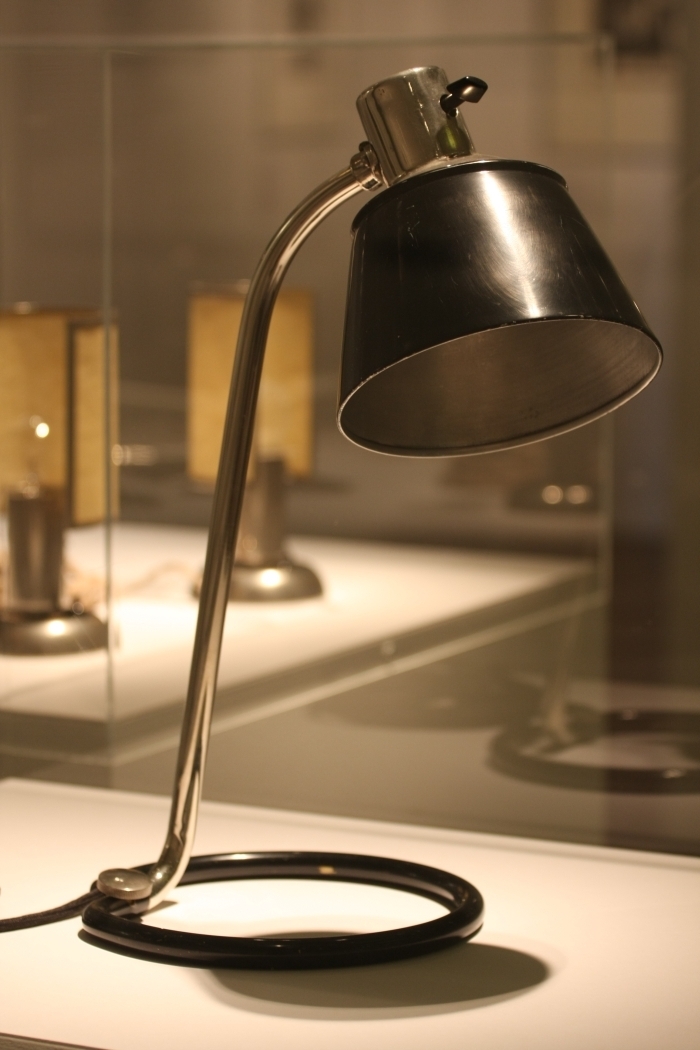
It was recently confirmed that the Bauhaus Archiv Berlin will receive its much discussed and mooted extension; viewing the two new exhibitions it is very clear why the Bauhaus Archiv Berlin needs its extension. All going to plan, and assuming bureaucracy and vainglorious, litigious architects don't get in the way, the extension will be finished in 2019, punctual to the celebration of Bauhaus's centenary. And thus not a moment to soon.
Bauhaus isn't the be all and end of all of 20th century architecture and design, nor is it a movement that has any hallowed right to a pedestal particularly higher or more prominent than any other; however, as a moment in European cultural history it was very important and remains as relevant now as it ever was. The new Bauhaus Archiv Berlin permanent exhibition is an excellent location for discovering and understanding why, and provides the necessary motivation to set you out on your own path of discovery and understanding. Which is of course exactly what such a permanent exhibition should do.
100 New Objects runs at the Bauhaus Archiv, Klingelhöferstrasse 14, 10785 Berlin until Monday May 25th. Sammlung Bauhaus, the permanent exhibition, at the same address albeit, and as the name implies, permanently.
Full details, including opening times and information on special events and tours can be found at www.bauhaus.de

